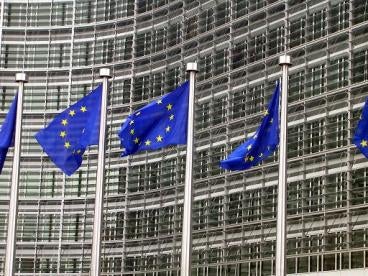Since April of this year, the EU agenda has been totally dominated by the migration issue. The sudden influx of several hundred thousand refugees from Syria, Eritrea and other conflict zones, but also economic migrants from the Balkan countries and elsewhere, has generated an earthquake of such a magnitude that any other discussion had to be set aside. One exception however deserves to be noted: the relationship with Turkey, which in the current political context received an unexpected boost.
After the offer from Angela Merkel in August to welcome in Germany all the refugees who had made it from Syria, the flux on the “Balkan road” increased greatly – and the focus of political action started to centre on the countries where this recent wave of migrants came from, in a desperate effort to stem the flow. The main beneficiary of this approach was the Turkish President Recep Tayyip Erdogan, who came to be extensively courted by EU leaders a few weeks before legislative elections in his country in November. Angela Merkel even took the pain of going to Ankara to ask him to keep the Syrian refugees in the huge camps where they have been living for years.
The Turks were fast to react: a window of opportunity had appeared to receive a positive answer to a number of requests they had been making for years – the opening of new chapters in the accession negotiation, lifting of the visa requirement for Turkish citizens in the Schengen area, enhancement of the Customs Union and more bilateral contacts between the Union and its big neighbour. A “joint action plan” was quickly drafted with the EU Commission, contacts were organised in the margin of the G20 summit, which met in November in Antalya under Turkish presidency (see: http://www.globalpolicywatch.com/tag/g20-summit/) and a promise was made to convene a summit with the European Council before the end of the year.
EU – Turkey relations have always mixed the highest ambition with profound distrust. Turkey in 1963 was one of the first countries to conclude an Association agreement with the European Economic Community. They formally presented their candidacy for accession in 1987, when the Community numbered only 12 members. But the accession talks only started in 2005 after the Community had become a Union of 25 members. Three other countries have joined since then whereas the negotiation with Turkey remained stalled. Turkey is also the only country candidate for accession for which a visa obligation remains.
The EU reluctance to open to Turkey is a mixture of permanent lobbying by Greece and Cyprus, due to the still unresolved occupation of Cyprus; the fear of many in the EU of seeing a Muslim country of more than eighty million getting closer to accession; and also, more recently, a reaction to the authoritarian turn taken by the AKP party and its leader. The Turkish government has not made many efforts in recent years to more fully adopt the European Union’s political criteria and has been widely criticized by Western media and experts for continuing to persecute journalists and challenge the independence of the judiciary.
But even these last concerns now seem to have been set aside: EU leaders, en route for Paris to participate in the COP 21 climate summit, spent a few hours in Brussels on Sunday November 29 with prime minister Davutoglu of Turkey to discuss cooperation regarding the Syrian refugees crisis. They issued a joint statement (available at: http://europa.eu/rapid/press-release_STATEMENT-15-6194_en.htm?locale=en) in which they announce the activation of the “joint action plan”, three billion Euros to help Turkey deal with Syrian refugees at home, a promise to “re-energise” the accession negotiation and a roadmap for the lifting of the visa requirement by October 2016.
The EU financial assistance will help Turkey in supporting the 2.2 million Syrian refugees still on its territory – with the aim of keeping them there. Turkey is encouraged to provide them social benefits and the right to work. Regarding the “irregular migrants”, those who are not entitled to asylum, Turkey and the EU will cooperate to prevent them from entering and return them “swiftly” to their countries of origin. The promised implementation of the bilateral readmission agreement will also allow refugees who entered the EU through Turkey to be sent back there. The mutual battle against criminal smuggling networks will also be reinforced.
In exchange for this cooperation, the Turks will get what they wanted most urgently: a roadmap for elimination of the visa requirement for Turkish citizens to enter the Schengen area. This promise might become a reality as soon as October 2016 “if the benchmarks are fulfilled” – the most important of which is the full application of the bilateral readmission agreement mentioned above.
In the accession negotiation, chapter 17, dealing with Economic and Monetary Policy, will be opened in December of this year and the Commission will prepare the opening of others. The text of the joint statement is careful on this perspective, mentioning that any action will be “without prejudice to the position of member states”. The member states having strong positions on this are obviously Cyprus and Greece, who fought hard to preserve their current veto of the opening of certain accession chapters as long as the Cyprus question is not solved. Fortunately, the current negotiations between Northern and Southern Cyprus have recently made significant progress and here too a breakthrough might soon occur.
In addition to the two summit meetings per year, a “high level Economic Dialogue Mechanism” will be put into place and a “business platform” will be established to bring business circles together. The joint statement also references the “strategic Energy Cooperation” that was decided in March and announces the opening of formal negotiations for the enhancement of the Customs Union by the end of 2016.
At the end of the Summit, Prime Minister Davutoglu said it was a “historic day” and vowed that Turkey would keep its promises. The agreement indeed, and as usually with the EU, is not without conditions, reflecting the scepticism of the member states. Not much will happen if Turkey does not fully fulfil its commitments and a strict monitoring process will be put in place. The agreement would be reviewed at least once a month, said the president of the European Council, Donald Tusk during the press conference after the meeting. President of the Commission Jean Claude Juncker added that the three billion Euros “are not being given with no strings attached”.
Nevertheless, in the current political context , with the war in Syria and the exodus of millions of its citizens, this agreement – a triumph of realpolitik – will not be without lasting geo-political consequences. It might not result in the accession of Turkey to the EU, for which resistance is probably too strong in many EU countries. But it will certainly consolidate the NATO Alliance, in need more than ever of a strong south eastern pillar. It also provides opportunities for business. The enhanced business dialogue and the promised enhancement of the customs Union will open new possibilities which cannot be ignored.




 />i
/>i
